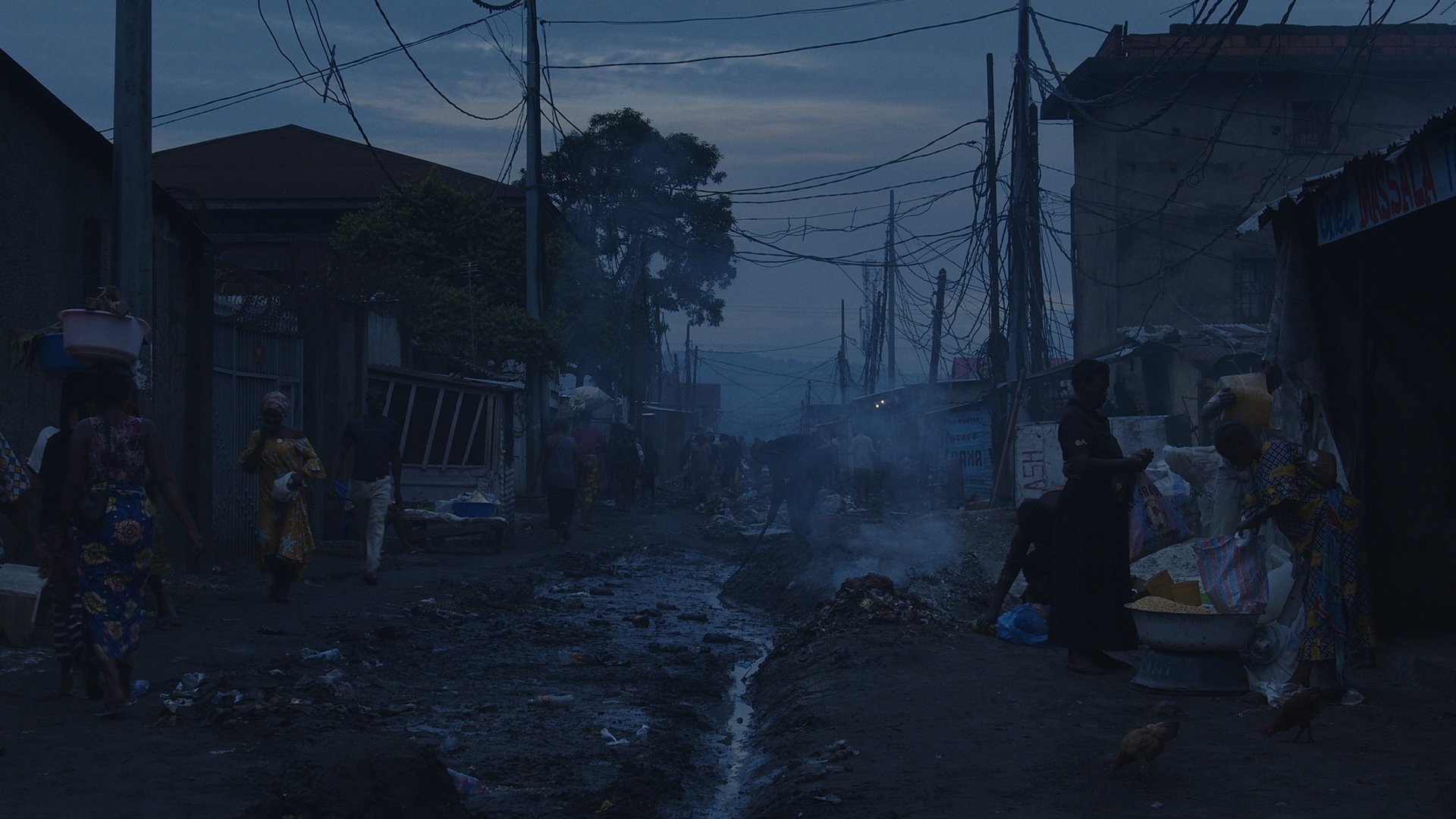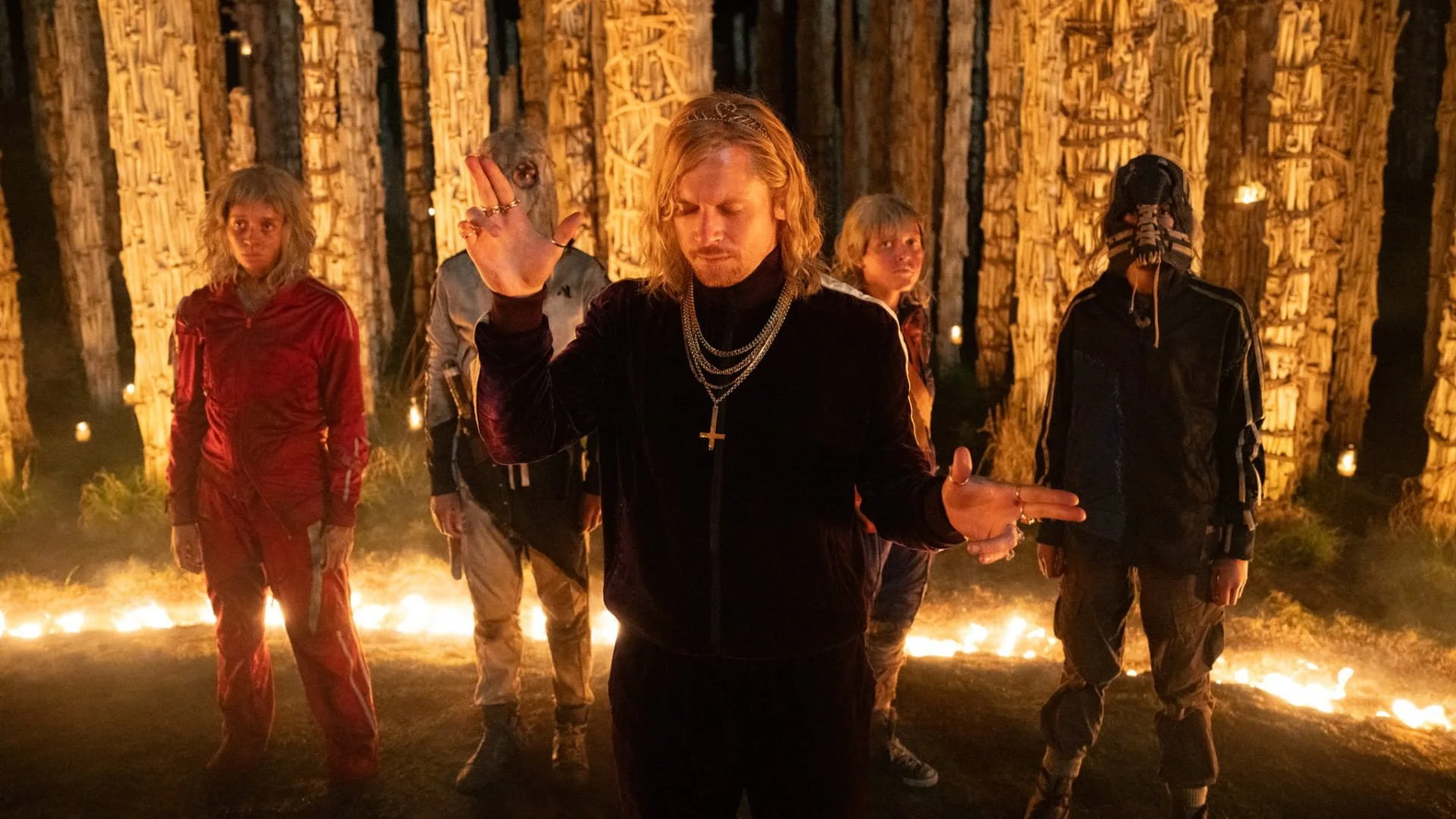Hot Docs 2024: Rising Up at Night
Some films just leave you baffled, and in that case you have to throw up your hands and admit you don’t get the point of the whole thing. Such is the case with Nelson Makengo’s Rising Up at Night. I might be missing the whole point of the film, but regardless, I had a lousy time watching it and was more irritated than impressed by its stylistic approach to documenting the ordinary lives of citizens in the Democratic Republic of the Congo.
Set in Kinshasa, the country’s capital and one of the largest cities on the African continent, Rising Up at Night follows a bunch of ordinary folks as they navigate nights of power outages and floods around Christmas. Most scenes offer a “slice of life” look at life in the capital, but with the added wrinkle of mostly taking place in flooded homes or dark streets. This lends an eerie quality to the otherwise everyday scenarios. We see neighbourhood meetups in the streets or people talking about life in their kitchens. The camera watches the people’s faces and pays careful attention to how they interact with each other. It never intrudes; it just watches. A common throughline are the portrayals of prayer groups where people seek answers from the Almighty, collectively asking God for guidance, for deliverance, for release. It sounds like an intriguing vérité approach to an underrepresented part of Africa: an admirable, interesting document of life in the here and now.
But despite the access to people’s lives in a massive city that we rarely get to see much of on the big screen, Makengo’s approach is opaque and works at cross purposes to what I assume are the film’s larger aims. For instance, despite all the intimate footage we get, and the attempted vérité approach to what we’re seeing, Makengo layers the film with an oppressive sound design and musical accompaniment that transforms what should be intimate moments into nightmarish ones. The constant shroud of darkness, when combined with the ambient score that brings in discordant rattles and thrums, transforms prayer scenes into scenes right out of a horror movie. People beg and plead and cry for deliverance, and it’s moving to watch their religious devotion and protestation, but the score drowns them out, overwhelms them and makes me feel like we’re meant to read these charismatic outbursts of religiosity as scenes of satanic desperation, which seems condescending, even critical.
These prayer scenes capture my overall difficulty with Rising Up at Night as a whole. What are we meant to take away from this film? If it is meant to immerse us in the difficulties of these people’s lives, their frustrations, their hopes, their prayers, why does it create such a stylistic barrier between us and them? There’s nothing wrong with the footage. It’s interesting to watch these people’s lives unfold. But how that footage is structured and presented leaves me at a loss for how it’s all supposed to work together, not just in a matter of artistic intent, but in a matter of whether the editorial voice of the film wants us to admire or pity its subjects.
I don’t know what to make of Rising Up at Night. Its style and its subject matter seem completely at odds, and if the entire thing were a formal exercise, it’s undoubtedly an unpleasant one.
4 out of 10
Rising Up at Night (2024, Democratic Republic of the Congo/Belgium/Germany/Burkina Faso/Qatar)
Directed by Nelson Makengo.



This mockumentary starring Matt Johnson and Jay McCarrol is a complex metafiction farce and a loving portrait of friendship and Toronto.